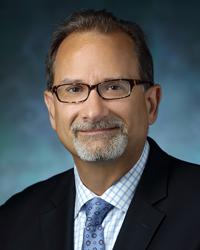
Kostas G. Lyketsos, MD
Psychiatry
4.8 of 5 stars
63 Ratings, 13 Reviews31 Insurances Accepted
View allAbout
Professional Titles
Primary Academic Title
Background
Leadership Title
Videos
Research Interests
PubMed
Honors
Memberships
Professional Activities
Expertise
Education
Johns Hopkins Bloomberg School of Public Health
Graduate School, MHS, 1994Johns Hopkins Bloomberg School of Public Health
Fellowship, 1993Johns Hopkins University School of Medicine
Residency, Psychiatry, 1992Washington University School of Medicine
Medical Education, MD, 1988Board Certifications
American Board of Psychiatry and Neurology
American Board of Psychiatry and Neurology, 1994Insurance
- Aetna
- Amerigroup District of Columbia
- AmeriHealth Caritas District of Columbia
- Beech Street
- Blue Cross Blue Shield Federal Employee Program (FEP)
- CareFirst
- Cigna
- Evernorth Behavioral Health
- First Health
- Geisinger Health Plan
- HealthSmart/Accel
- Humana
- JAI Medical Systems
- Johns Hopkins Health Plans
- Kaiser Permanente
- KeyCare
- Maryland Physicians Care
- Medicaid Maryland
- Medicare Maryland
- MedStar Family Choice District of Columbia
- MultiPlan
- Pennsylvania's Preferred Health Networks (PPHN)
- Point Comfort Underwriters
- Private Healthcare Systems (PHCS)
- Provider Partners Advantage HMO SNP Medicare Advantage
- South Central Preferred (SCP)
- Superior Vision
- TRICARE (Humana Military East)
- UnitedHealthcare
- Veteran Affairs Community Care Network (Optum-VACCN)
- Wellpoint (Amerigroup MD)
Reviews
4.8 of 5 stars
63 Ratings, 13 ReviewsThe Patient Rating score is an average of all responses to physician related questions on the national CG-CAHPS Medical Practice patient experience survey through Press Ganey. Responses are measured on a scale of 1 to 5, with 5 being the best score. Comments are also gathered from our CG-CAHPS Medical Practice Survey through Press Ganey and displayed in their entirety. Patients are de-identified for confidentiality and patient privacy.
- 5 out of 5 starsReviewed on 3/20/2024
Great job
- 5 out of 5 starsReviewed on 3/6/2024
Dr Lyketsos is so knowledgeable , understanding, and down to earth. I Always feel that I can ask him about anything . I am the spouse of the patient.
- 5 out of 5 starsReviewed on 2/28/2024
Trust him with his knowledge
- 5 out of 5 starsReviewed on 2/18/2024
In my travels I have received medical treatment from doctors all over the world. Dr Lyketsos rates at the very top of my quality/satisfaction.
- 5 out of 5 starsReviewed on 12/6/2023
Excellent
- 5 out of 5 starsReviewed on 11/29/2023
Very helpful and compassionate.
- 5 out of 5 starsReviewed on 11/15/2023
,knowledgeable,Very friendly, concerned about my condition, very helpful , feel much better after taking to him
- 5 out of 5 starsReviewed on 11/15/2023
Excellent. Explained everything thoroughly, was patient, asked questions and asked for questions.
- 4 out of 5 starsReviewed on 10/11/2023
He is excellent. I appreciate his interest in my care.
- 5 out of 5 starsReviewed on 10/4/2023
Excellent provider. Kind, affable and compassionate, practical in approach
- 5 out of 5 starsReviewed on 10/4/2023
Excellent care and communication
- 5 out of 5 starsReviewed on 9/13/2023
Extremely knowledgeable. Excellent diagnostician.
- 5 out of 5 starsReviewed on 8/30/2023
Excellent service
